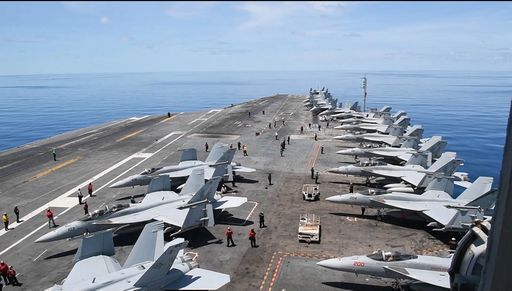US President Donald Trump on Monday warned Iran, which Israel is pounding, to re-enter negotiations "before it's too late" as Group of Seven leaders considered a joint call for de-escalation.
Host Canada had designed the summit in the Rockies resort of Kananaskis to paper over differences within the bloc of major industrial democracies, as Trump returns to the global stage in his norm-shattering second term.
But two days before the summit, Israel launched a surprise, massive military attack on Iran, which had been in negotiations with the Trump administration over its nuclear programme.
Trump, who has praised Israel's strikes despite his stated preference for diplomacy, said he believed a negotiated settlement remained "achievable."
"It's painful for both parties, but I'd say Iran is not winning this war, and they should talk, and they should talk immediately, before it's too late," Trump told reporters as he met Canadian Prime Minister Mark Carney.
Israel has struck major nuclear and military sites and killed leading commanders and nuclear scientists in Iran, which has responded with its own volley of drones and missiles on Israel.

De-escalation
Canada and European leaders have looked to draft a statement on the crisis, although it looks set to stop short of demanding a ceasefire.
Leaders will discuss the statement Monday evening, a diplomat said. British Prime Minister Keir Starmer said that G7 leaders share concern about Iran's nuclear programme but there is "absolutely a focus on how we de-escalate this and that will be a central focus as we go into the talks."
"I do think there's a consensus for de-escalation," Starmer told reporters.
German Chancellor Friedrich Merz said that a text being put forward by the Europeans would put the onus on Iran. "We'll highlight again that Iran must never possess material that would allow it to produce nuclear weapons," Merz said.
"We'll highlight the legitimate right of the state of Israel to defend itself and we will also discuss potential additional measures to reach a diplomatic solution," he said. Unusually, Japan - which has historic relations with Iran and limited domestic pressure on the Middle East - has broken with its Western allies and is the only G7 nation that has criticised Israel.
Israel's strikes while diplomacy was ongoing were "completely unacceptable and deeply regrettable," Japanese Foreign Minister Takeshi Iwaya said.
Iran, since Trump pulled out of an earlier nuclear deal in 2018, has ramped up uranium enrichment but not at levels to create a number bomb. Israel is widely known to have nuclear weapons but does not acknowledge them publicly.
Regional tensions have escalated since Friday, when Israel launched coordinated air strikes on multiple sites across Iran, including military and nuclear facilities, prompting Tehran to launch retaliatory strikes.
Israeli authorities said at least 24 people have been killed and hundreds injured in Iranian missile attacks since Friday. Iran, for its part, said at least 224 people have been killed and over 1,000 others wounded in the Israeli assault.
















